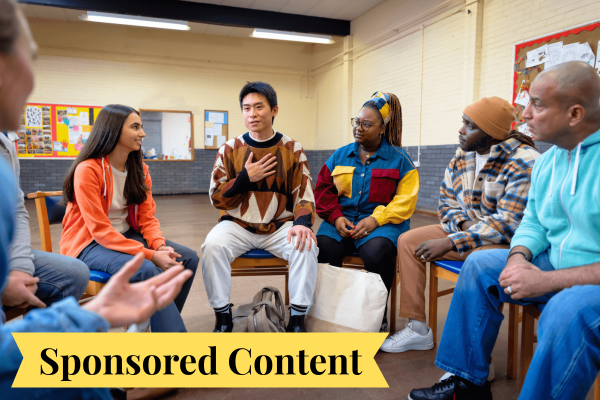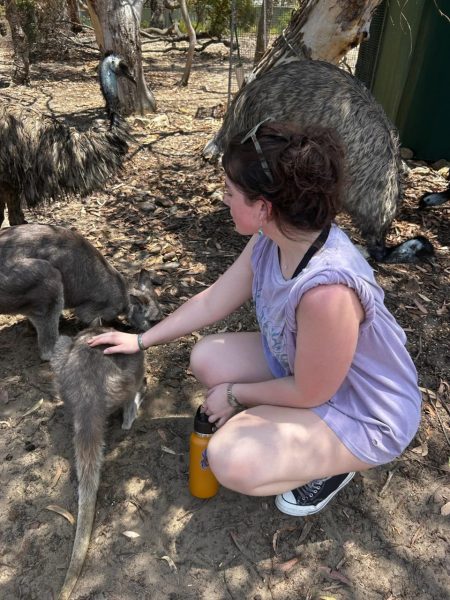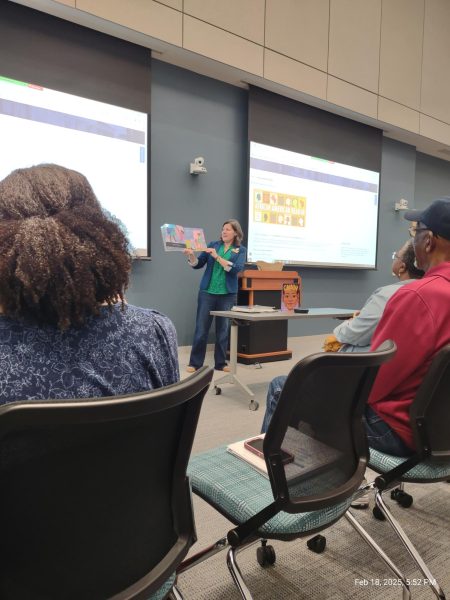Leadership minors collect money and donations for “Cell Phones for Soldiers”
UNC Wilmington’s leadership minors are supporting the internationally renowned non-profit Cell Phones for Soldiers with drop boxes and cell phone drives throughout October.
With the month coming to a close, the leadership minors have been busy collecting old cell phones to recycle, as well as monetary donations. The students held three major drives last week: at the New Hanover and Laney high school football game, during the October 17 men’s soccer match against Georgia State and at the Battleship North Carolina’s ghost ship exhibit.
According to Kelsey Crowder, a leadership student and member of the class’s operations team, the students have collected over 655 dollars in monetary donations and 50 cell phones.
“The leadership minor students who graduated last May decided to support this specific project,” Crowder said. “They believed it was a great opportunity to showcase their leadership skills while also benefiting a wonderful cause.”
Crowder also noted that last year’s leadership minor students took into account the large military presence on UNCW’s campus in their decision to support CPFS.
Each recycled cell phone amounts to five dollars. The money resulting from recycled cell phones and monetary donations are then used to purchase talk minutes that allow military families to communicate when service members are overseas.
Not only is Cell Phones for Soldiers an organization that exhibits issues relevant to students at UNCW with its many Camp Lejune students, its founders are a model for students trying to make a difference in the world.
Robert and Brittany Bergquist are part of the millions-deep throng of college students in the United States. However, the biggest difference between them and the normal book-slinging college scholar is that in 2004, at the ages of 12 and 13, the Bergquist siblings founded CPFS.
During that year, the siblings heard about a soldier who had an $8,000 phone bill and was unable to call his family from overseas where he was deployed.
Seriously disturbed by the soldier’s situation, the siblings came up with the idea to collect old phones via drops they placed at local businesses to provide soldiers with a free means of communication.
According to Robert Bergquist, their idea quickly hit a speed bump when the Pentagon called to inform them them cell phones could not be shipped overseas due to security reasons.
Not to be deterred, after some research, the Bergquists discovered recycling one phone earned $5, which would purchase 2.5 hours of talking time.
According to the Military Benefits Support Center, staying in touch with loved ones is a top five “how to survive deployment” strategy.
Since 2004, CPFS has provided more than 168 million free talk minutes to soldiers and their families, keeping their line of communication smooth.
“The story of how CPFS was founded is both remarkable and inspirational,” Crowder said. “It highlights the importance of leadership at all ages. We all as leadership minors are driven to use our leadership knowledge to help support and promote this incredible cause.”
While cell phones could not be physically used to help the soldiers, the Bergquists decided to base their organization around them anyway, tapping into the exchange of phones for minutes and the need to relieve landfills of an overabundance of discarded phones.
According to the CPFS Fact Sheet, 130 million phones are decommissioned each year. Since 2004, CPFS has recycled 10.5 million cell phones.
The Bergquist siblings recognize that with changing technology, the use of Skype is making communication easier and talking on the phone is not as much of an issue as it was in 2004.
In July 2012, CPFS implemented Helping Heroes Home. Proceeds from recycled phones and donations will not only go to talking minutes for active duty soldiers, but also to helping veterans by providing “emergency funds…to alleviate physical, emotional and assimilation hardships.”
Robert Bergquist expressed gratitude toward the leadership students and UNCW as a whole for supporting the cause that he and his sister established.
“It’s a good sign that kids my age are supporting and showing an interest in the organization,” Bergquist said in a phone interview.
The UNCW leadership students and the Bergquist siblings will continue to use their opportunities and resources to do good for those who have served the United States. They are not millionaires and they do not have superpowers. They are students who go to class, hang out with friends, get their assignments done and still find time to help others.











